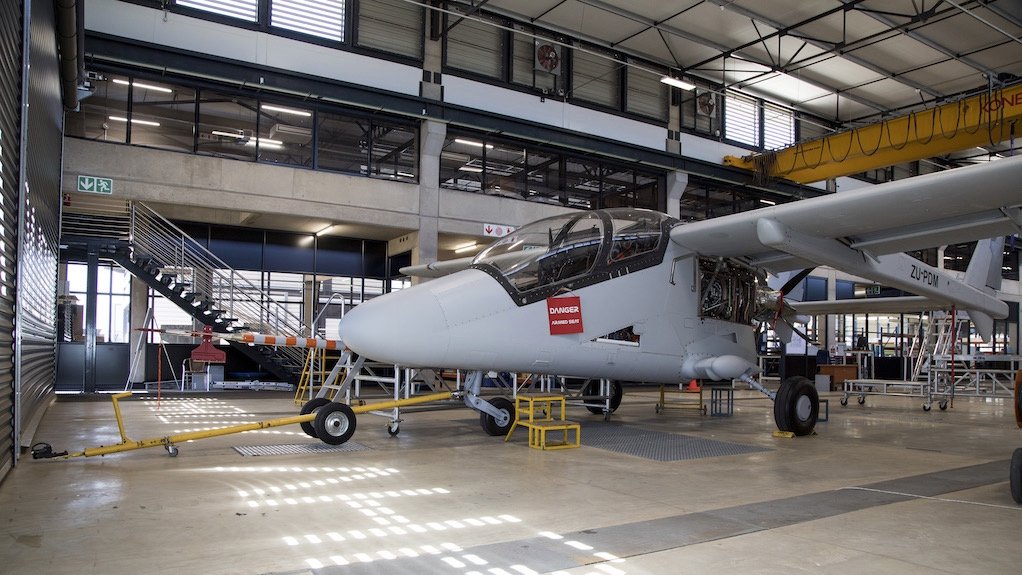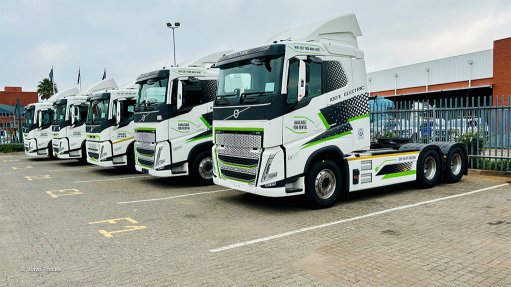Continent has potential to gain the most from Industry 4.0, says Paramount head


MADE IN SOUTH AFRICA Paramount Group’s Mwari aircraft is a testament of digital technology at work as it is designed entirely in a digital format, thereby enabling for a jigless construction
Africa is not alone in its unpreparedness for shifting into the Fourth Industrial Revolution, or Industry 4.0, but it has the potential to gain the most out of such a development by introducing new ways of manufacturing, says aerospace and defence company Paramount group executive chairperson Ivor Ichikowitz.
“Once deemed a region in need of economic support, the continent is now embracing digital technology as part of its DNA.”
Factors such as mobile connectivity and renewable energies are transforming Africa in “unprecedented” ways, with the challenges being faced by African implementers and adapters to Industry 4.0 being at the level of foundational factors such as infrastructure and investment.
“. . . Africa is now in a unique position – it is ripe for technological innovation, modern trade and global partnerships,” he says, adding that manufacturing, business and infrastructure have drastically advanced in Africa over the past two decades. “These are the developments I see driving the region towards economic prosperity.”
In terms of manufacturing, Ichikowitz notes that Africa – with its wealth of natural resources, labour and land – has always held the promise of becoming a manufacturing powerhouse. However, he points out that reliance on commodity exports and sporadic infrastructure have “conspired” to slow Africa’s industrial development.
However, manufacturing capability is being returned to local Africans, with digital technology currently filtering down to cities and towns, he notes. “For a manufacturer in Nairobi, parts can now be designed and produced in that country, as a result of the introduction of digital design and three-dimensional (3D) printing.”
In South Africa, such development has enabled domestic aerospace engineers to use the latest computers and software to digitally design and manufacture new aircraft, such as Paramount Group’s Mwari, which combines the technology and capabilities of reconnaissance aircraft and attack helicopters in a single airborne platform.
“Mwari is a case study of digital technology at work: the fact that every single part of the aircraft was predesigned on a computer allowed for it to have a jigless construction, where every part fits together, much like a Meccano set, thereby saving vast amounts in cost and time,” he says.
In terms of business, Ichikowitz says digital technology has influenced the way Africans do business for decades. But, now, against the backdrop of this technology revolution, he posits that startup hubs across Africa are beginning to challenge the major companies in major cities with exciting concepts, products and ideas.
The impact of Industry 4.0 on the emerging startup and well-established African business world is coming to fruition, with the critical requirement of support, investment and infrastructure integral to maintaining this growth.
However, with growth comes job creation and, ultimately, with technological development, the long-standing debate on whether the introduction of digital technologies, such as artificial intelligence, will result in job losses, as people are replaced by machines.
“In many parts of the world, advanced robotics and 3D printers are seen as a threat to manufacturing jobs,” he states. However, in many parts of Africa, manufacturing has never taken off, contributing just 5% of the continent’s jobs, compared with between 15% and 18% in other developing regions, says Ichikowitz.
Therefore, he posits that, in Africa, robots will “not kill many jobs”, but instead offer the opportunity to create new jobs by helping African businesses overcome the challenges in production and lowering the barriers to making products and selling them to the world.
“This is an opportunity for Africa to upskill the continent, and teach new abilities that will enable us to bring new jobs into the economy and futureproof the continent for the next century,” says Ichikowitz. Such a move will result in a larger selection of information technology-focused careers, such as coders, programmers and computer scientists, while introducing a new wave of tech-savvy farmers, engineers and manufacturers, besides others, he adds.
Infrastructure, which Ichikowitz says has long been a serious challenge to overcome in Africa, is another key element to benefit from the Fourth Industrial Revolution. “A region with a vast extent of territories, a conglomeration of people in densely built cities and sporadic public funding initiatives has, until now, contributed to a continent that relies almost exclusively on the car and the generator, resulting in high levels of congestion and pollution.”
He points out that the rest of the world is eager to do business with Africa, but poor infrastructure has limited access to markets and quashes the desire to invest in industry.
Comments
Press Office
Announcements
What's On
Subscribe to improve your user experience...
Option 1 (equivalent of R125 a month):
Receive a weekly copy of Creamer Media's Engineering News & Mining Weekly magazine
(print copy for those in South Africa and e-magazine for those outside of South Africa)
Receive daily email newsletters
Access to full search results
Access archive of magazine back copies
Access to Projects in Progress
Access to ONE Research Report of your choice in PDF format
Option 2 (equivalent of R375 a month):
All benefits from Option 1
PLUS
Access to Creamer Media's Research Channel Africa for ALL Research Reports, in PDF format, on various industrial and mining sectors
including Electricity; Water; Energy Transition; Hydrogen; Roads, Rail and Ports; Coal; Gold; Platinum; Battery Metals; etc.
Already a subscriber?
Forgotten your password?
Receive weekly copy of Creamer Media's Engineering News & Mining Weekly magazine (print copy for those in South Africa and e-magazine for those outside of South Africa)
➕
Recieve daily email newsletters
➕
Access to full search results
➕
Access archive of magazine back copies
➕
Access to Projects in Progress
➕
Access to ONE Research Report of your choice in PDF format
RESEARCH CHANNEL AFRICA
R4500 (equivalent of R375 a month)
SUBSCRIBEAll benefits from Option 1
➕
Access to Creamer Media's Research Channel Africa for ALL Research Reports on various industrial and mining sectors, in PDF format, including on:
Electricity
➕
Water
➕
Energy Transition
➕
Hydrogen
➕
Roads, Rail and Ports
➕
Coal
➕
Gold
➕
Platinum
➕
Battery Metals
➕
etc.
Receive all benefits from Option 1 or Option 2 delivered to numerous people at your company
➕
Multiple User names and Passwords for simultaneous log-ins
➕
Intranet integration access to all in your organisation



















